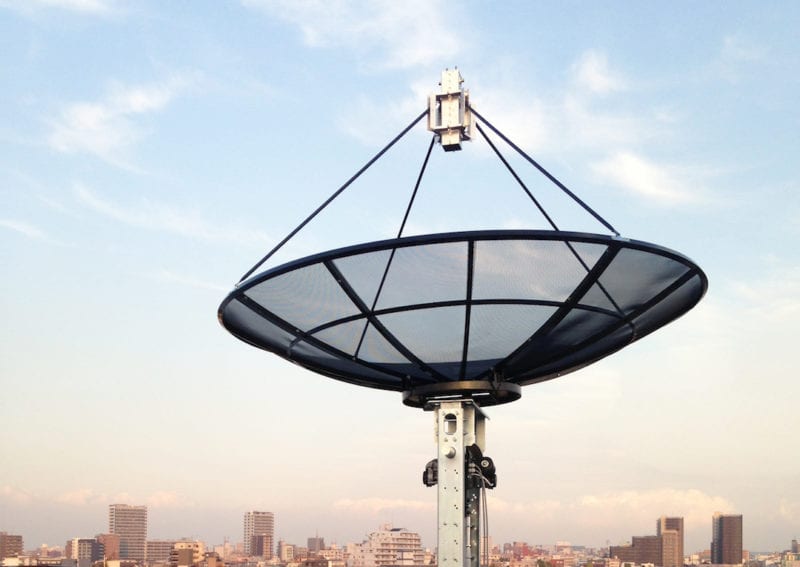Latest News

Photo: Infostellar
In a world where enterprises can rent not just additional computing power, but their entire IT network, Tokyo-based startup Infostellar is using that model by offering ground-station-as-a-service for the emerging Low-Earth Orbit (LEO) satellite market.
Satellite operators are only able to use their hugely expensive ground stations to communicate with a satellite when the bird is overhead — typically less than an hour a day in LEO. Given that, it seems natural that the LEO sector is crying out for some kind of aggregator or reseller, to help heavily leveraged operators generate revenue from otherwise-wasted ground station downtime.
But this environment first came as a surprise to Infostellar.
When the company was launched in 2016, co-founder and CEO Naomi Kurahara says they envisaged their main role as a facilitator for satellite operators who wanted to share a network of ground stations with each other to increase their geographical reach. But the LEO market grew more slowly than expected, she says.
“We faced a situation where our partner ground station owners needed to get revenue [from their downtime]. On the other side, the satellite operators who owned ground stations weren’t really motivated to share [their stations]. They just wanted to buy a service.”
“Demand and supply became separated,” she said.
So Infostellar refashioned itself into what TechCrunch dubbed the “Airbnb for ground stations,” matching station owners who had downtime to rent out with satellite operators who need ground station access — and providing the cloud-based web platform, StellarStation, that facilitates the sharing.
Kurahara says the goal stayed the same — making ground stations available for small satellite companies — but the modality changed.
Having launched their service, Infostellar has just raised an additional $3.5 million in convertible bonds with existing investors Airbus Ventures and Sony Innovation Fund, with new investors Daiwa Energy Infrastructure, Mitsubishi UFJ Capital, and Mitsubishi UFJ Lease & Finance. The company has raised a total of $11.5 million to date, and is continuing to raise funds, with the current round scheduled to close by June.
Infostellar says this funding round will allow the company to hire business development and sales personnel to strengthen its management.
The company is now aiming for global coverage, Kurahara says, so that they can offer ground station as a service all over the world. Infostellar currently has 13 ground stations in its network, having recently inked deals with Azerbaijani satellite operator Azercosmos and Australian ground segment operator Capricorn Space.
The network covers all the frequencies used by LEO satellites, including S-band and X-band, but its geographic coverage is restricted for the time being. Kurhara says reaching between 16 to 25 ground stations is a key target to provide global coverage, and much depends on where the ground stations are. The company plans to onboard another five or six stations this year, which will bring it close to that capability.
The next step, she explains, is to get contracts from satellite operators prepared to pay for access to ground station network. “Creating a revenue stream is the challenge,” she says.
StellarStation, the platform through which operators book and operate ground stations in the network, is hardware and protocol-agnostic, the company says. Which is good, given the highly proprietary and stovepiped character of traditional satellite telemetry and management systems.
A web-based interface allows potential customers to search the network for compatible ground stations. Using the same interface, customers can book a ground station for a timeslot when their satellite will be overhead and even manage the uplink.
One potential bump in the road is the highly regulated environment in space. “Our technical solution is agile and flexible,” Kurahara says, explaining that regulations have necessitated “delays before we can start the service.”
Moreover, regulatory requirements undermine one of Infostellar’s big picture goals — to lower entry barriers to the satellite business. In theory, ground-station-as-a-service means businesses don’t need their own ground station — and the capital investment implied — to get into the satellite business.
But regulatory requirements stipulate that satellite operators have to own a ground station anyway, which is why Infostellar last year hired former OneWeb Director of Government Affairs Andrew Fry to head up a new regulatory affairs division. The division’s goal is to raise the profile of regulatory issues in the small satellite community and “support ground station owners and satellite operators by … providing specialized services to facilitate regulatory and licensing compliance,” the company said at the time.
Gen Tsuchikawa , chief investment officer of Sony Innovation Fund, said in the latest funding news release that Infostellar will deliver “breakthrough” solutions for satellite operators and ground station providers.
“The Infostellar team is a rare combination of exceptional software engineering with a unique approach of resource-sharing in the space industry,” Tsuchikawa said. “They have made great strides in both research and technology, which will help bring their cutting-edge innovation to the market.”
Get the latest Via Satellite news!
Subscribe Now